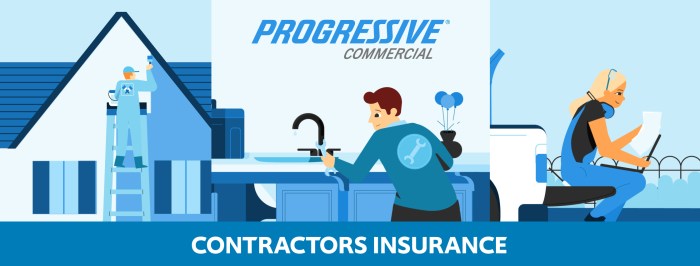Embark on the journey to find a primary care physician near you who is welcoming new patients with open arms. Discover the essential steps and tips to navigate this crucial healthcare decision.

As you delve into the realm of primary care physicians, prepare to unravel a wealth of information that will guide you towards making the best choice for your health and well-being.
Research for a Primary Care Physician
When looking for a primary care physician near you, it is important to start by conducting thorough research to ensure you find the right healthcare provider for your needs.
Using Online Resources
Utilize online resources such as healthcare provider directories, hospital websites, and health insurance company portals to search for primary care physicians accepting new patients. These platforms often allow you to filter your search based on location, specialty, and other preferences to help narrow down your options.
Checking Reviews and Ratings
Before selecting a primary care physician, it is crucial to check reviews and ratings from other patients. Websites like Healthgrades, RateMDs, and Google reviews can provide valuable insights into the quality of care provided by the physician. Pay attention to both positive and negative feedback to get a well-rounded view of the physician's practice.
Contacting Healthcare Providers
When looking to contact healthcare providers to inquire about their acceptance of new patients, it is essential to be prepared with the necessary information and know what to expect. Here is a guide on how to effectively communicate with a primary care physician's office and schedule an appointment.
Process of Contacting Healthcare Providers
When reaching out to healthcare providers, it is recommended to call their office during regular business hours. You can find the contact information for a primary care physician online, through your insurance provider, or by asking for recommendations from friends or family.
Be prepared to provide your basic personal information, insurance details, reason for seeking care, and any specific preferences you may have.
Information to Have Ready When Calling a Primary Care Physician's Office
Before calling a primary care physician's office, make sure you have your insurance card, ID, and a list of any current medications or health concerns. Be ready to provide your full name, date of birth, address, phone number, and insurance information.
It is also helpful to have a preferred date and time for your appointment in mind.
Guidance on Scheduling an Appointment with a Primary Care Physician
When scheduling an appointment with a primary care physician, be prepared to discuss your reason for the visit and any specific symptoms or concerns you may have. You may need to provide additional information such as your medical history, previous treatments, and any recent test results.
The office staff will work with you to find a convenient appointment time and provide any necessary instructions for your visit.
Insurance and Coverage
It is crucial to ensure that your primary care physician accepts your insurance plan to avoid unexpected out-of-pocket expenses. Understanding how to verify if a primary care physician is in-network with your insurance provider can help you make informed decisions about your healthcare.
Verifying In-Network Status
- Check your insurance provider's website or call their customer service to inquire about in-network primary care physicians in your area.
- Ask the primary care physician's office directly if they accept your insurance plan and if they are considered in-network.
- Confirm with both your insurance provider and the physician's office to avoid any confusion or billing issues.
Understanding Financial Aspects
- Be aware of your copayment amount for primary care visits, which is the fixed fee you pay at each appointment.
- Know your deductible, the amount you must pay out of pocket before your insurance coverage kicks in.
- Understand coinsurance, the percentage of costs you are responsible for after meeting your deductible.
- Review your insurance policy to familiarize yourself with any limitations or exclusions related to primary care services.
Visiting the Physician's Office
When visiting your primary care physician for the first time, it's important to be prepared and know what to expect. This initial visit sets the foundation for your ongoing healthcare relationship with your doctor.Discussing your medical history and current health concerns with your physician is crucial during the first visit.
This information helps the physician understand your health background, any risk factors, and potential health issues to address. Be honest and open about your health history to ensure you receive the best possible care.
Importance of Discussing Medical History and Current Health Concerns
- Provide detailed information about past illnesses, surgeries, medications, allergies, and family medical history.
- Discuss any current symptoms, concerns, or changes in your health.
- Be prepared to share lifestyle habits, such as diet, exercise, smoking, and alcohol consumption.
- Your physician can use this information to create a personalized care plan tailored to your specific health needs.
Building a Good Rapport with Your Primary Care Physician
- Be respectful and courteous during your interactions with your physician and their staff.
- Communicate openly and ask questions about your health concerns or treatment plans.
- Follow through on your physician's recommendations and attend follow-up appointments as needed.
- Establishing trust and a good relationship with your primary care physician can lead to better health outcomes and a more proactive approach to your healthcare.
Final Summary
In conclusion, the quest for a primary care physician near you accepting new patients is not merely a search, but a pathway to enhanced healthcare experiences. As you embark on this endeavor, remember to prioritize your needs and preferences, ensuring a fruitful partnership with your chosen healthcare provider.
FAQ Corner
Does every primary care physician near me accept new patients?
While most primary care physicians do accept new patients, it's always wise to inquire directly with the physician's office to confirm their current status.
How can I check if a primary care physician near me accepts my insurance plan?
You can verify this information by contacting your insurance provider or the physician's office directly to ensure that they accept your insurance coverage.
What should I bring to my first appointment with a primary care physician?
It's recommended to bring your insurance card, a list of current medications, any relevant medical records, and a list of questions or concerns you may have.
How can I establish a good relationship with my primary care physician?
Open communication, honesty about your health concerns, and active participation in your healthcare decisions are key factors in building a strong rapport with your primary care physician.
 As you delve into the realm of primary care physicians, prepare to unravel a wealth of information that will guide you towards making the best choice for your health and well-being.
As you delve into the realm of primary care physicians, prepare to unravel a wealth of information that will guide you towards making the best choice for your health and well-being.









